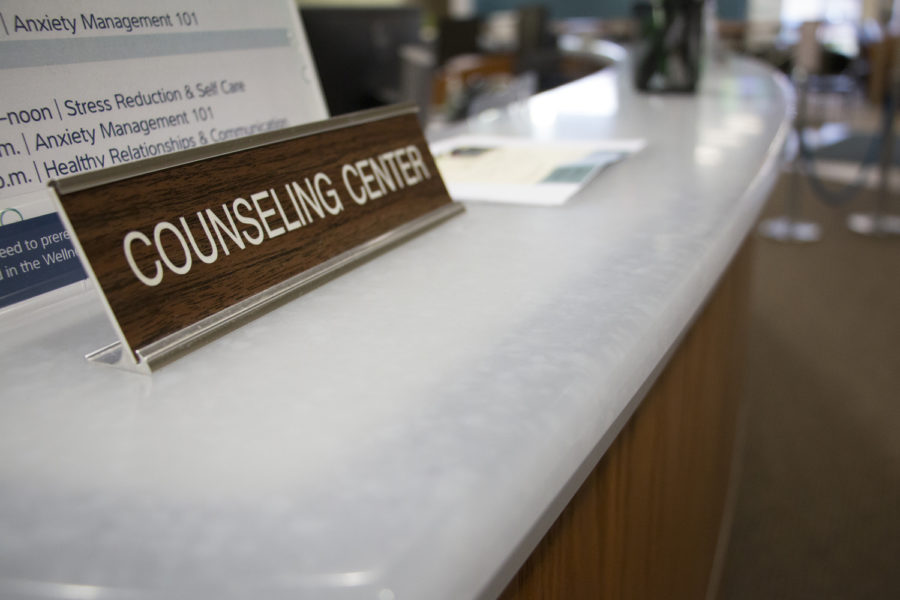‘You’re not left behind just because you’ve left campus’: Pitt still offering mental health resources during summer recess
Kamakashi Sharma — a senior neuroscience major and president of Pitt Active Minds, a peer-based mental health advocacy organization — said it’s more effective to host Mental Health Awareness Month in October.
May 26, 2021
While there are still events being planned for Pitt’s October celebration of Mental Health Awareness Month, organized by Student Government in cooperation with more than 15 student organizations, Eva Steele, vice-chair of the Mental Health Student Coalition, said mental health resources are always available and awareness can be raised year-round.
“Mental health is something that can affect you all the time and I think it is important to understand that there are always resources that are available all year-round for students to use and not just for Mental Health Awareness Month,” Steele said.
Despite the national Mental Health Awareness Month falling in the month of May, Pitt celebrates in October when most students are on campus. Steele said it’s difficult dealing with the change in environment during school breaks, and the University acknowledging students’ mental health during this time apart is especially important.
“During the summer months, again, Pitt should let people know that we’re still there for them. Stay strong with the message that mental health is something that is going to affect you and it doesn’t have to necessarily be tied to academics,” Steele, a junior social work major, said. “Whether or not you’re on break there needs to be that consistency through the University that mental health is going to affect you all the time, and it is something we can all work on.”
Kamakashi Sharma, a senior neuroscience major and president of Pitt Active Minds — a peer-based mental health advocacy organization — said it’s more effective to host Mental Health Awareness Month in October.
“We host Mental Health Awareness Month in October because that’s when students can actually experience the entire month during a semester,” Sharma said. “Typically across campuses and across the nation they do celebrate it more during May, but no one’s on campus during May.”
Student Affairs spokesperson Janine Fisher said all students are encouraged to use the resources provided by the University Counseling Center, including group counseling, wellness workshops and individual teletalk hours.
“At Pitt, we believe that student well-being is an ongoing and shared responsibility of our entire community,” Fisher said. “During the nationally observed Mental Health Awareness Month and throughout the year, we call on our community to ‘Seize the Awkward’ and have conversations with our friends and loved ones about their well-being, share with each other resources and services offered by the University Counseling Center (UCC) and continue to take care of ourselves.”
Danielle Floyd, a member of SGB, said the University has been doing a great job at helping students feel more supported by increasing access to mental health resources, especially during the past year with the ongoing COVID-19 pandemic.
“This has been a really tough year for people — people lost jobs, people lost family members and people lost career opportunities,” Floyd, last year’s chair of the wellness committee, said. “I think now more than ever, students need to feel supported, and I think the Counseling Center has been doing their very best to be more visible to students and deconstructing the stigmas that prevent students from utilizing their different services.”
Floyd, a junior economics major, said the main goal of Mental Health Awareness Month is to remind people to focus on their well-being.
“The goal of Mental Health Awareness Month is to try to get students who usually don’t think or pay much attention to their own mental health, and try to get them to learn to interact with the events that we have throughout the month, so they can be equipped with skills and a support system they can utilize year-round,” Floyd said.
Floyd said the pandemic has made this past year especially difficult for people, which has made both the University and students reflect on the Pitt community’s well-being and coping skills.
“I think this year, particularly, has forced like ourselves and the University to reexamine how we go about interacting, getting teams to interact with different mental resources and getting them to be engaged in discussions around mental health,” Floyd said.
Steele said she hopes students understand that, despite not being on campus, there are still many ways for them to reach out, especially through the use of social media.
“One thing that we use a lot is social media and so it is definitely helpful to see an organization, posting something about the fact that they still have resources available and having that show up in your feed, to help reassure you that you’re not left behind just because you’ve left campus,” Steele said.








